選択した画像 grade 1 club foot horse 587409
Higher grade cases may have limitations in terms of their ability to perform and to remain sound, but the majority of horses with lower grade club feet are able to lead quite normal lives with appropriate hoof care, and owners of grade 1 horses may not even realize that their horse has a club foot at all Some horses with club feet have even been successful in high levelClub foot case recently This particular horse, a six year old gelding, has what I feel is a grade three club foot (on a 15 scale) Apparently the club foot condition has been with this horse since it was a foal This horse found it difficult to stand square or under himself before shoeing January/February 1996The Natural AngleJanuary Horse Care How to care for the basic health needs of horses Lameness Prevention, diagnosis, and treatment of leg lameness Nutrition Proper feeding practices for foals, adult horses, and older horses
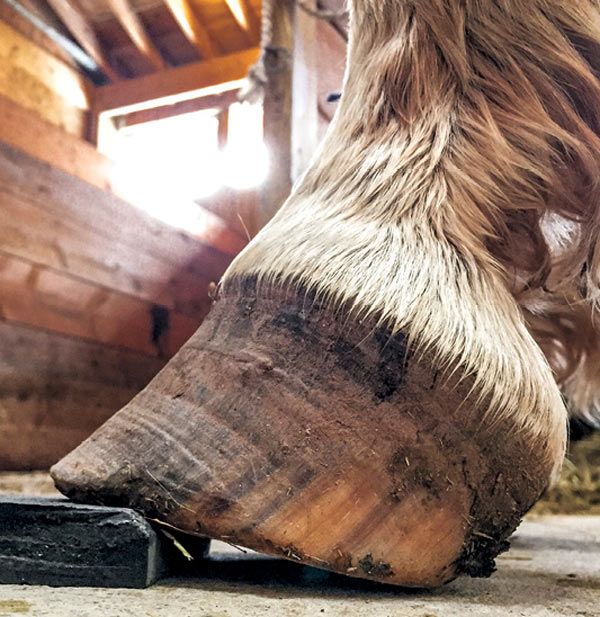
Club Foot Or Upright Foot It S All About The Angles American Farriers Journal
Grade 1 club foot horse
Grade 1 club foot horse-This is the milder case of club foot; The remaining four horses each had an abnormal foot conformation (longtoe, lowheel three horses;




Understanding Club Foot The Horse Owner S Resource
Veterinarians can classify both congenital and acquired club feet as Type 1 (hoofground angle is 90 degrees or less) or Type 2 (hoofground angle is greater than 90 degrees) These are Grades 1, 2 and 3 and as you'd come to expect, Grade 1 is the top of the pile Horses will have to carry weights but their previous performances aren't brought into consideration, only their age and sex Grade 2 is similar to Grade 1 and horses are weighted according to their previous wins, or either by WeightForAge (penaltiesThe problem with club foot is abnormal forces generated in the hoof The natural concussion dampening of the lower limb is lost Grade 1 Three degrees greater angle than the opposite, pronounced coronary band Grade 2 Growth rings, broken forward Grade 3 Dorsal hoof wall is obviously concave Grade 4 Angle greater than 80 degrees will
Higher grade cases may have limitations in terms of their ability to perform and to remain sound, but the majority of horses with lower grade club feet are able to lead quite normal lives with appropriate hoof care, and owners of grade 1 horses may not even realize that their horse has a club foot at allThe heel will be higher than that of the opposite foot The foot is smaller in width and shorter in ground length and normally has a dish appearance in the front hoof wall There are four grades of club feet Grade 1 Feet are mismatched and affected foot is 3 to 5 degrees greater than the opposite foot A club foot has an upright configuration of the hoof, characterized by having excessive amount of heels Club feet are categorized into grades 1 through 4 where grade 1 is mild and grade 4 is the most severe The cause is that the condition is usually hereditary but it can sometimes be caused by a flexural injury
Grade 1 is 35 degrees greater than the opposing foot;Midwest Horse Welfare Foundation, Inc Discussion Forum Search Midwest Horse Welfare Foundation, Inc > Topics > Corey Arab mare Reply Author Comment Page 2 of 3 Prev 1 2 3 Next Lisa B Posted #26 So happy for Corey and JoAnn! A grade horse is a horse of unknown lineage—a crossbred Saying a horse is a grade horse is the equivalent of a dog being a "mutt" I'm not using the term "mutt" in a derogatory way either!



Lesson 4




Recognizing And Managing The Club Foot In Horses Horse Journals
If someone has been simply leaving the heels too high, the sole will show you exactly what the horse needs In most club feet, I simply exfoliate (with my hoof pick, only) any dead sole in the back half of the foot and then lower the heels until they are 1/16 inch longer than the callused sole plane If the sole is thin at the toeFunny aside I pointed out to one client that her mare's "different looking" foot was a club She replied, "Oh, you can fix it?" Member Rubysmom Posted on Sunday, 12 pm Redmare, interesting to hear My gelding has very mild, (less than grade 1) bilateral front club feetFigure 1 Radiograph shows a moderate flexural deformity (yellow circle) involving the DIPJ in a horse with a club foot The flexural deformity is caused by a shortened DDF muscle tendon unit (red line) Grossly, the dorsal hoof wall angle is upright or steep accompanied by a broken forward footpastern axis A flexural deformity of the DIPJ can be defined as a shortening of the




A Club Foot Is Caused By Mobile Equine Diagnostics Inc Facebook



Www Theneaep Com S Xia1nkm5hdp7yhwyucxfn39k42qa8m
One consistent feature was that the lameness was chronic, ranging from months to The contracted muscle/club foot condition is a common growth problem in young horses (up to 6 months of age), causing upright pasterns and a tiptoe stance This is often seen in foals with developmental problems due to rapid growth If discovered soon enough, this condition can be reversed by altering the foal's diet and reducing stress on So this horse is a grade 1 club, you can't even notice unless his feet get too long, but I was curious about a few things 1 We're updating his rasping to every 2 weeks instead of 4, and mainly doing his heels and rounding his hooves in a slight mustang roll way



Club Feet The Brutal Truth David Farmilo



Club Foot Horse
That's a completely different foot inside even though it has the same hoof angle Grade 1 Club Feet The feet appear mismatched with the hoof angle of the affected foot being 35 degrees greater than the opposing foot There is a characteristic fullness at the coronary band due to slight movement of the pastern and coffin bone Clubfeet are classified in four grades, depending on severity, with Grade 1 being the mildest form and Grade 4 being severe Treatments range from therapeutic farriery to surgery




Shoeing Options For Club Foot In Horses




Club Foot Just How Sore Is Your Horse Casey Son Horseshoeing School
A horse with club foot has one hoof that grows more upright than the other The "up" foot is accompanied by a broken forward pastern, that is, the hoof is steeper than the pastern (Photo 1) In a normal foot, the hoof capsule and the pastern align Radiographs will show that the boney Grade 1 The angle of the toe and the palmar angle of the coffin bone are 5 degrees greater in the affected foot than the opposite foot Grade 2 The growth rings in the hoof wall become wider at the heel than at the toe, the palmar angle increases even further, and the horse's heel no longer touches the ground when the heel is trimmed or rasped back to the widest part of In the horse, hoof growth is dictated in large part by weight distribution If a horse puts more weight on the inside of a hoof, the blood is pushed to the opposite side of the foot causing faster growth and wearing down the weighted surface at a faster rate With respect to the club foot, the heel of the affected foot grows faster and the hoof




Living With Clubfoot What Shoes I Wear As An Adult
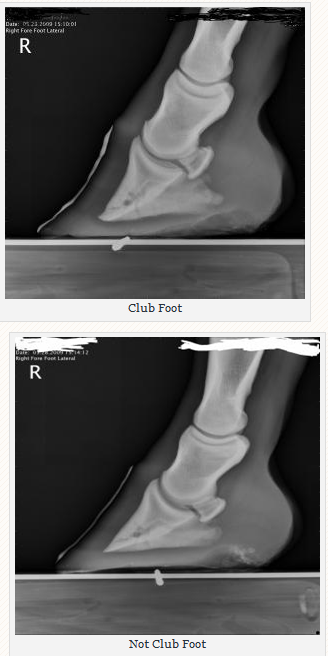



Managing The Club Hoof Easycare Hoof Boot News
A That depends on a number of factors Among these would be what phase of laminitis the horse is in acute, chronic or postchronic The appropriate treatment is dictated by the state of the disease Bottom line, the same principles apply no matter the conformation of the footBoth hooves have a 62° hoof angle The first foal's club foot has a slight dish in the front, a high PA of 12°, and a BA of 50° That foot might be a candidate for check ligament desmotomy But the other foal's club foot has a 23° PA and a BA of 60°;Some of the best dogs and horses that I have ever owned have been ones that were not purebred pinterestpinit



Club Foot In Horses Equine Chronicle
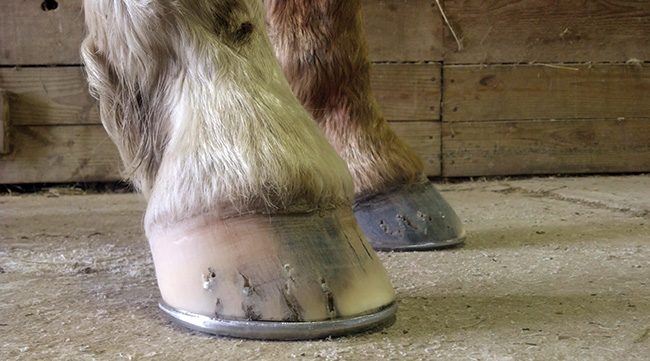



Hoof Care Email Q A American Farriers Journal
Grade 4 exhibits a heavily dished hoof wall with an angle of 80 degrees or moreWhen performed when the horse is very young (before 2), it can help the situation However, studies on the efficacy of the surgery have not distinguished between club foot and contracted tendons It is now being thought that it is more effective for contracted tendons, and only moderately effective to ineffective for club feet While Grade 3 and 4 are extreme and the horses are most likely very lame, Grade 2 and 3 are not that uncommon I will mostly focus on these two grades How do these club hooves happen or develop?




28 Club Foot Ideas Club Foot Horse Health Horse Care




Club Foot In Horses Brian S Burks Fox Run Equine Center Facebook
Picture 1 Grade 4 Club Foot, upright and boxy appearance Picture 2 Slam Dunk Foot, note low heel/long toe Picture 3 LM Radiograph of Grade 2 CFS, note dish in hoof wall Picture 4 LM Radiograph of "Slam Dunk" or counterpart to the Club FootA club foot is a DEFORMITY and for any horse to win at top level competition it needs every possible advantage and no drawbacks The only way to stop continuing problems with club footed horses is not to breed from them After 11 months of gestation, it is a costly and heart breaking exercise if it results in a club footed foalOr "club foot" one horse), but the lameness had not been localized to the foot The degree of lameness at initial presentation varied among the study group;



Club Foot In Horses Equine Chronicle



Horse Foot
Grades I's and mild II's can often compete without "the bad stuff" starting to occur Racehorse Easy Goer has a Grade III club foot (which ain't going to help his value at stud) Grade III's are likely to have have significant problems with anything more than the very lightest use Grade IV's are in very bad shape Q How should I treat a grade 3 or 4 laminitic club foot? Club Foot Conformation in Horses Caused by abnormal contraction of the deep digital flexor tendon, a club foot puts pressure on the coffin joint and initiates a change in a hoof's biomechanics Telltale signs of a club foot may include an excessively steep hoof angle, a distended coronary band, growth rings that are wider at the heels




Hoof Conformation Vs Horse Conformation Scoot Boots Us Retail




What Causes Club Feet American Farriers Journal
In photo 1 you can see the dish in the hoof wall is at or just below the coronary, a grade 3, whereas a dish at or just above the end of the toe would likely be considered grade 1 or 2 This club foot, as seen in photo 2 , has very straight medial andThere are four grades of club foot Grades 1 to 4 as follows Grade 1 – Only note a difference in the hoof angles that returns with each trim Grade 2 – Greater difference in hoof angles, growth rings begin to change There is an air gap (space between the bottom of the heel and the ground bearing surface heel does not fully weight bear/load on the ground 1 Somewhere in his blood lines, he likely has someone from the "Prides Generator" line "the Old Man", as he is called where I live, had a club hoof Because he produced great horses for the show ring, the money mongers kept breeding him 2 Less is more with that hoof I have a 23 yr old TWH that has a lessthan grade 1 club hoof




Recognizing And Managing The Club Foot In Horses Horse Journals



Would You Buy A Horse With Club Foot Pics The Horse Forum
1 I interpret that to mean, you recently acquired a gelding who has a club hoof and a lot of flare 2 If I read that sentence literally, I interpret it to mean you have a gelding who recently "got a club foot and terrible flare" Since that doesn't make sense to the Proverbial JackAss (that's how we say it in my world, I am going with #1Heel or Club Foot Stephen E O'Grady, DVM, MRCVS, APFa,*, Vernon C Dryden, DVM, CJFb A horse with an upright foot with a high heel can fall within the realm of acceptable foot conformation, but this needs to be distinguished from a club foot If measured, an upright foot will have a toe angle greater than 55 , the slope of the horn tubules inTraditionally, club feet or flexural deformities have been classified as type 1 where the hoofground angle is 90° or less and type 2 where the hoofground angle is greater than 90° 3 A recent method of classifying club feet using a grading system (grade 14) has been proposed 2,9 It would appear beneficial to classify the severity of the flexural deformity to devise an appropriate treatment plan and monitor the response to a given therapy A grading



Http Www Bendequine Com Documents Theclubfoot Pdf




Club Foot Ronaldmarshall
So, earlier this summer, just after Ariane, 14, completed the ninth grade, I promised to take her for a week of water sports at a Club MedGrade 2 has a hoof angle of 58 degrees greater, and the heel will not touch the ground when trimmed to normal length; A true club foot is significantly more upright than the other hooves, or the angles of both hoof walls are steeper than the angles of the pasterns The severity of the problem is commonly graded on a fourpoint scale Grade 1, the mildest form of club foot, might be so subtle it's hard to spot "A grade 1 might have a three to fivedegree difference between the two feet,




Is This A Club Foot Horsetalk Co Nz



Www Theneaep Com S Xia1nkm5hdp7yhwyucxfn39k42qa8m
This horse found it difficult to stand square or under himself before shoeing In photo 1 you can see the dish in the hoof wall is at or just below the coronary, a grade 3, whereas a dish at or just above the end of the toe would likely be considered grade 1 or 2 This club foot, as seen in photo 2, has very straight medial and lateral wallsFurther classified into two types stage 1 or type 1, in which the hoof axis is less than or equal to 90°, and stage 2 or type 2, in which the hoof to ground angle is greater than 90°7 A recently proposed classification system designates four grades of clubfoot2,8 A grade 1 clubfoot has a hoof axis 3° to 5°A grade 1 club foot has a hoof axis 3° to 5° greater than the opposite foot and displays fullness at the coronary band but is mild enough that the hoofpastern axis is aligned A grade 2 club foot is slightly more severe, with a hoof axis measuring 5° to 8° greater than the contralateral foot



Www Theneaep Com S Xia1nkm5hdp7yhwyucxfn39k42qa8m




Understanding Club Foot The Horse Owner S Resource
First we do have the genetic club hoof, the foal is born with it, where P3 is out of alignment with P2 and P1 and displays a steeper angle A club foot can be described as severe or not severe, with four different grades that are classified by Versaille, Ky, equine veterinarian Ric Redden, Butler says Grade 1 With an angle of 3 to 5 degrees higher than normal, the hoof growth rings in a Grade 1 club foot are nearly parallel, making it less serious Grade 2Club foot refers to a tendon flaw that causes the hoof to be very upright Often, club foot affects both front legs with one being more severe than the other Club foot can occur before or after birth in foals After birth foals acquire club feet when the bones grow faster than the tendons Treatment varies with the age of the horse and



Equine Podiatry Dr Stephen O Grady Veterinarians Farriers Books Articles




Conformation Faults Involving The Hoof Club Foot Vet Med Hooves
There are several theories on what can cause a club foot to occur Many stem from the understanding that situations limiting the range of movement in a horse's limb can cause a hoof to grow more upright 1 INJURY One of the more commonly accepted causes is the result of an injury, most notably suprascapular nerve damageGrade 3 club foot has an anterior hoof wall described as dished with the heel twice as wide as the toe;Link Casey, Instructor at Casey & Son Horseshoeing School Unedited REAL footage featuring a horse brought to the school Explaining the angles, the shoulder




Recognizing Various Grades Of The Club Foot Syndrome
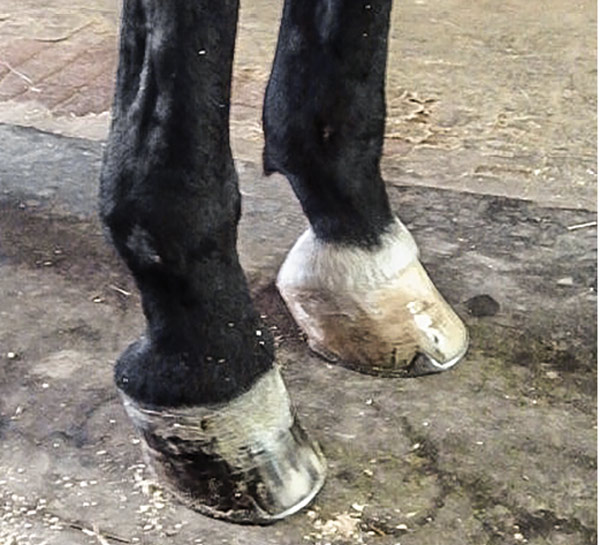



What Advice Has Been Most Helpful When You First Encounter A Club Foot American Farriers Journal




How D That Happen Origins And Remedies For Clubfoot Horse Racing News Paulick Report



Www Theneaep Com S Xia1nkm5hdp7yhwyucxfn39k42qa8m



Club Foot In Horses



Www Theneaep Com S Xia1nkm5hdp7yhwyucxfn39k42qa8m
.jpg)



The Iron Horse November 14
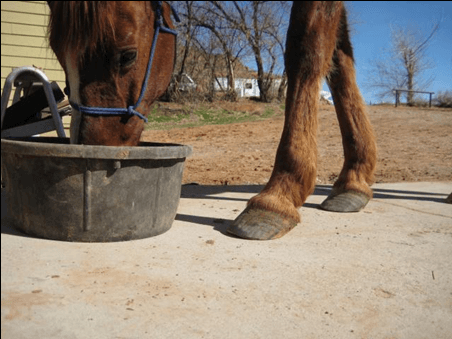



Managing The Club Hoof Easycare Hoof Boot News




Understanding Club Foot The Horse Owner S Resource



Www Openveterinaryjournal Com Ovj 19 03 069 l comparini et al Pdf




Horse Club Foot




Club Foot In Horses Brian S Burks Fox Run Equine Center Facebook



Www Theneaep Com S Xia1nkm5hdp7yhwyucxfn39k42qa8m




Ballerina Syndrome Where The Heels Remain Off The Ground Even At The Download Scientific Diagram



Club Foot Definition The Horse Forum




3 Top Tips For Choosing A Dressage Horse




Club Foot Or Upright Foot It S All About The Angles American Farriers Journal
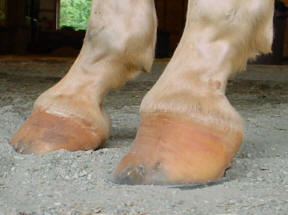



Club Foot




Club Foot Or Upright Foot It S All About The Angles American Farriers Journal




Understanding Club Foot The Horse Owner S Resource




Recognizing Various Grades Of The Club Foot Syndrome




Hoof Conformation Vs Horse Conformation Scoot Boots Us Retail



So Called Club Foot By James R Rooney Dmv




Recognizing And Managing The Club Foot In Horses Horse Journals




Frequent Trips Aid Club Foot American Farriers Journal



Is This A Club Foot Horsetalk Co Nz




Recognizing Various Grades Of The Club Foot Syndrome



1



Performanceequinevs Com Wp Content Uploads 19 12 Equine Foot Secrets Ebook Compressed Pdf



Shoeing News Club Grades Harness Racing Newsroom Usta Ustrotting




Recognizing And Managing The Club Foot In Horses Horse Journals




Recognizing And Managing The Club Foot In Horses Horse Journals
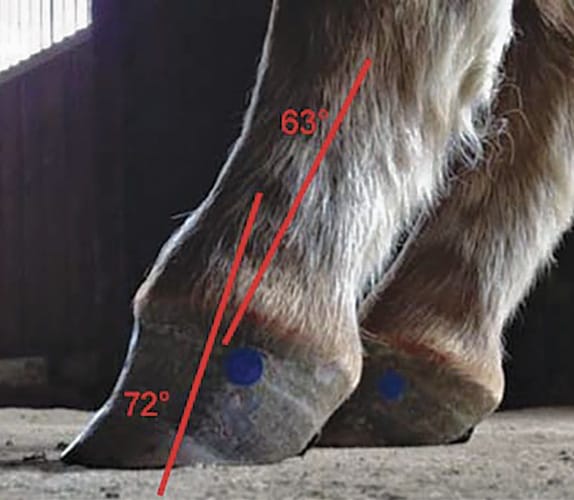



Defining And Fixing A Horse S Club Foot American Farriers Journal



Equine Podiatry Dr Stephen O Grady Veterinarians Farriers Books Articles



Club Feet The Brutal Truth David Farmilo
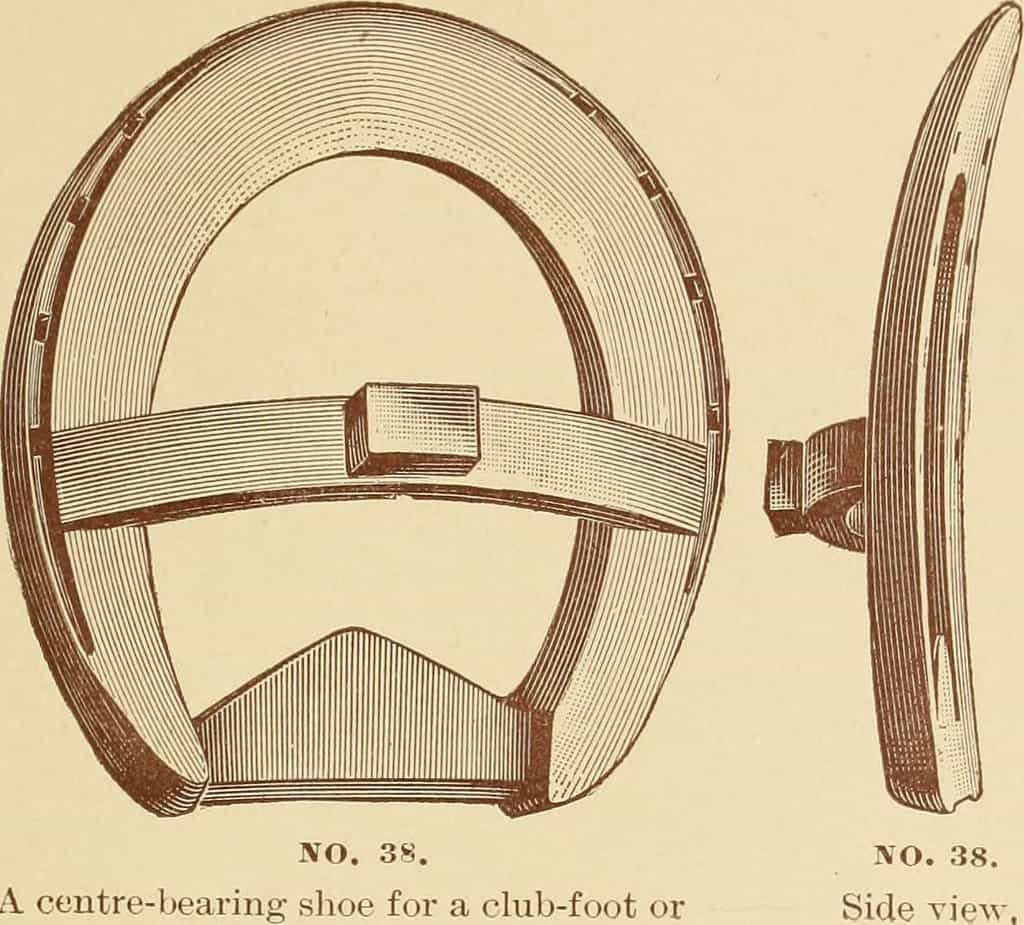



Coping With Club Foot




How D That Happen Origins And Remedies For Clubfoot Horse Racing News Paulick Report




Recognizing And Managing The Club Foot In Horses Horse Journals




Understanding Club Foot The Horse Owner S Resource




Passing The Club Foot Exam American Farriers Journal
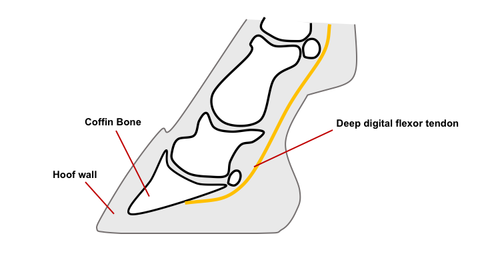



Club Feet In Foals




Recognizing Various Grades Of The Club Foot Syndrome
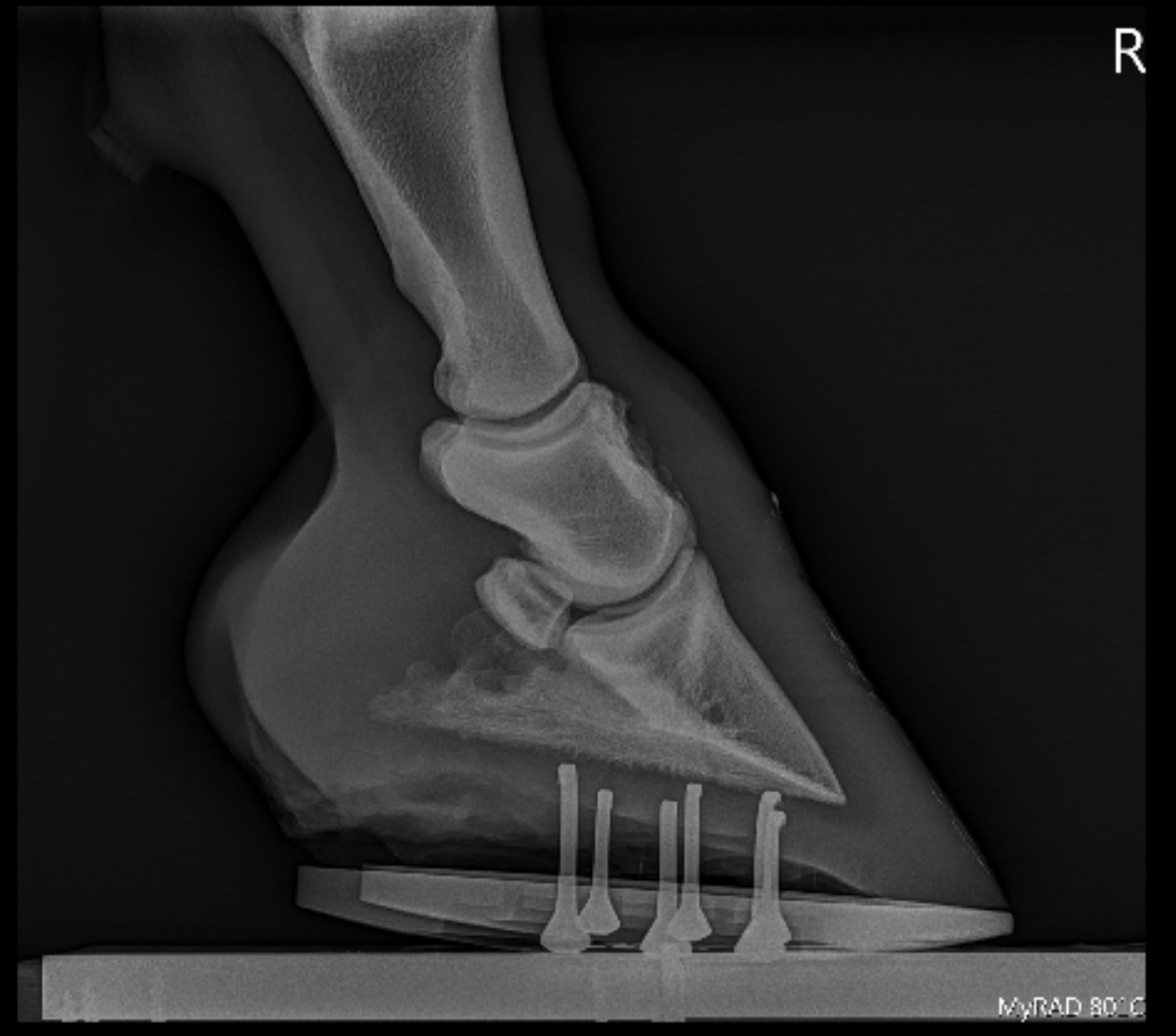



Podiatry Burwash Equine Services
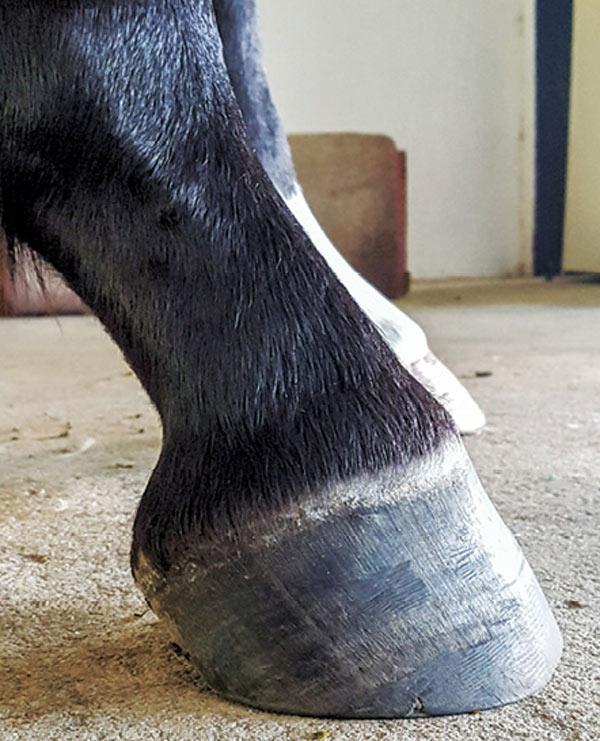



Club Foot Or Upright Foot It S All About The Angles American Farriers Journal
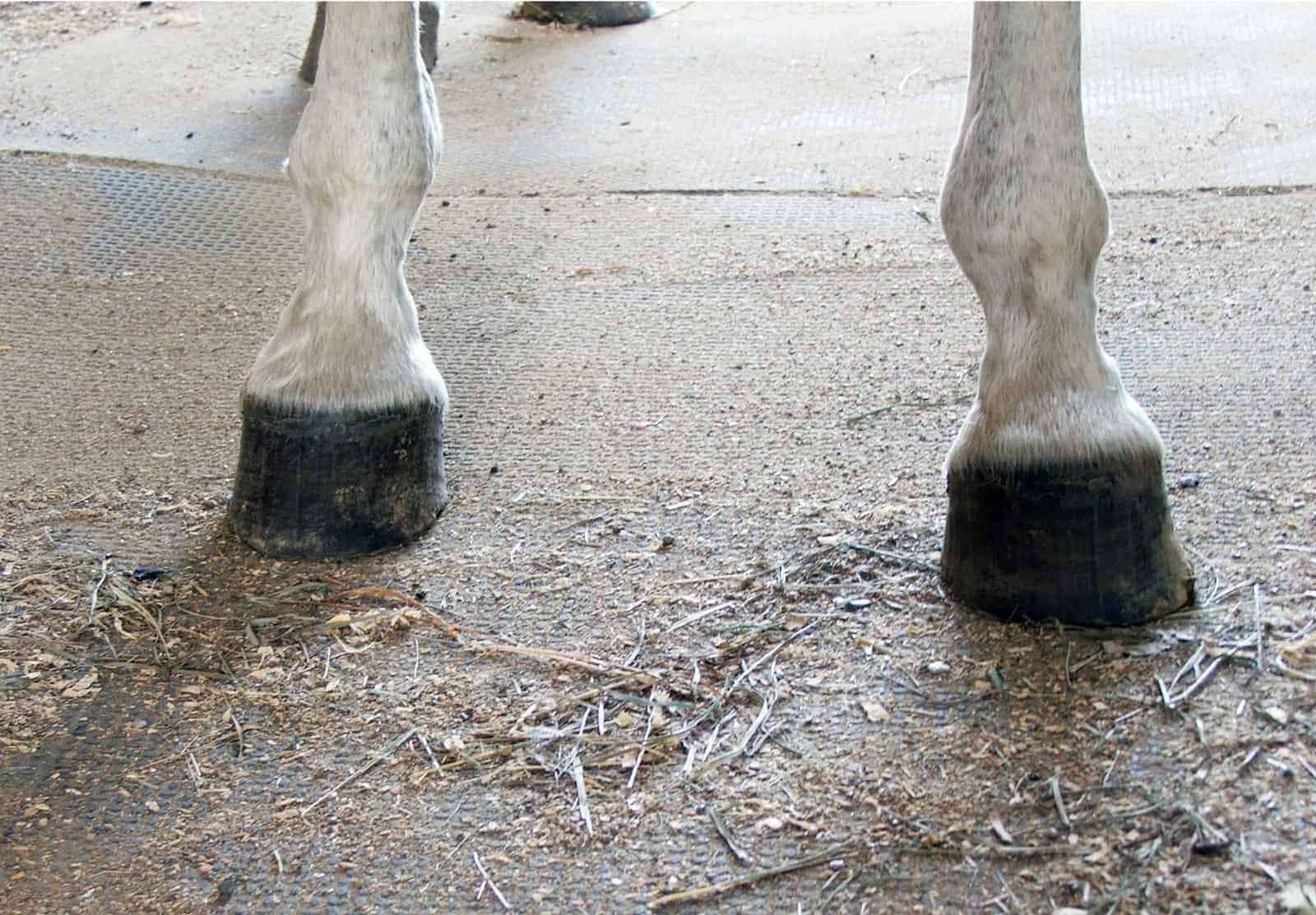



Club Foot Heritability In Horses The Horse




Recognizing And Managing The Club Foot In Horses Horse Journals




Ballerina Syndrome Where The Heels Remain Off The Ground Even At The Download Scientific Diagram
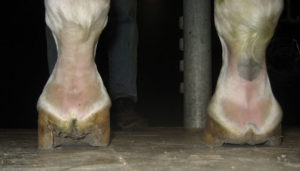



Horse Hoof Irregularities Club Foot Integrity Horse Feed
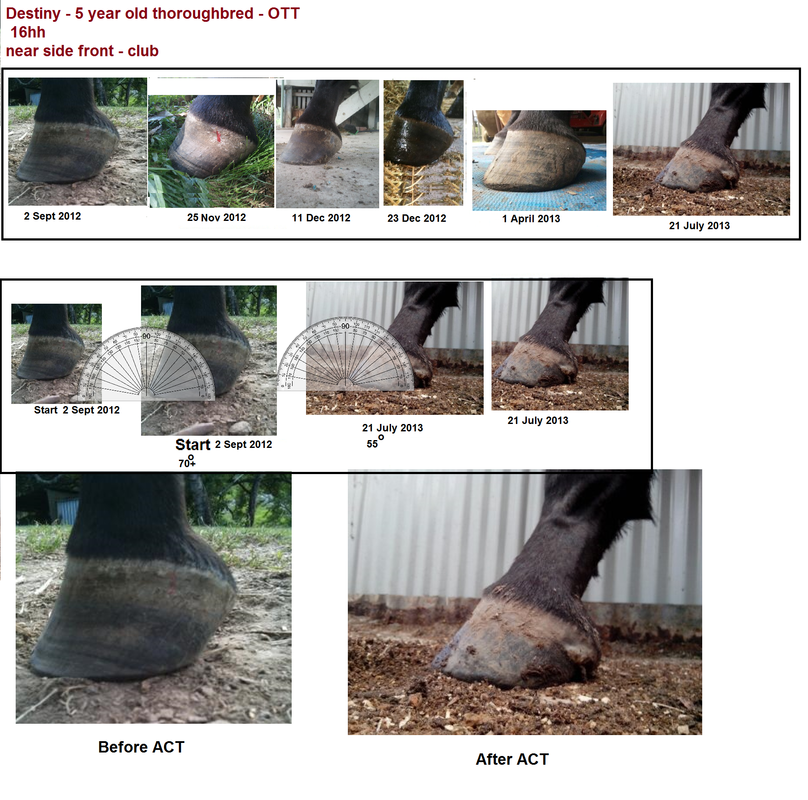



Club Foot Rehabilitation Act Trimming Strategy
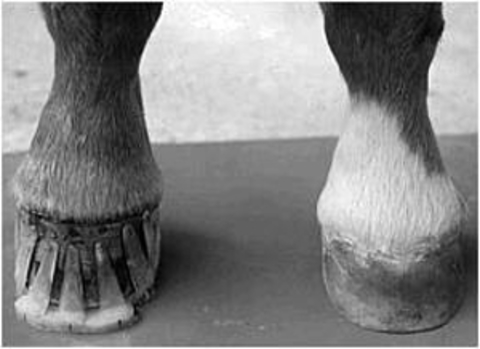



Club Feet In Foals
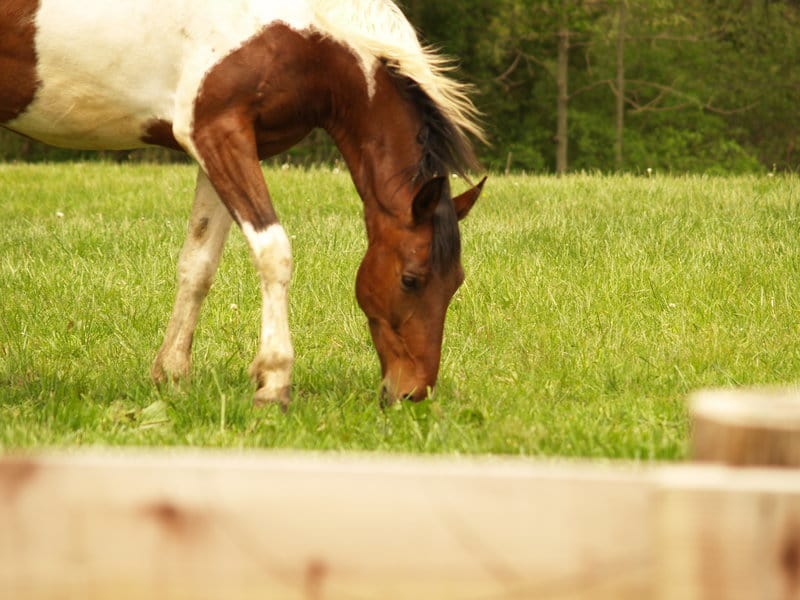



Coping With Club Foot



Correct
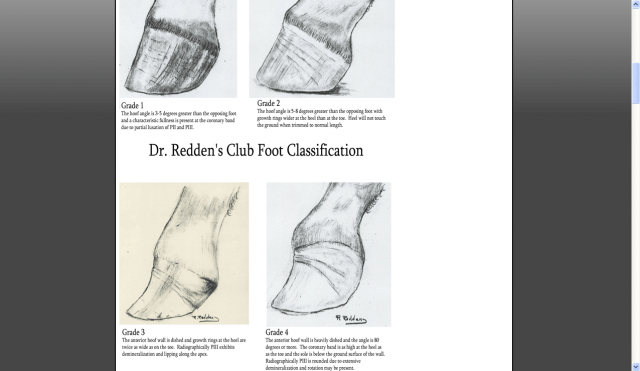



Managing The Club Hoof Easycare Hoof Boot News



Club Foot



Equine Podiatry Dr Stephen O Grady Veterinarians Farriers Books Articles




Shoeing Options For Club Foot In Horses



ep Org Sites Default Files Issues Proceedings 12proceedings In Depth The Foot From Every Angle Hunt Pdf



Club Foot Definition The Horse Forum




Understanding Club Foot The Horse Owner S Resource




Recognizing Various Grades Of The Club Foot Syndrome




Ballerina Syndrome Where The Heels Remain Off The Ground Even At The Download Scientific Diagram




The Club Foot Is It No Big Deal Or A Deal Breaker




Webinar Shoeing The Club Footed Horse Youtube




How To Treat Club Feet And Closely Related Deep Flexor Contraction




Recognizing And Managing The Club Foot In Horses Horse Journals



ep Org Sites Default Files Issues Proceedings 12proceedings In Depth The Foot From Every Angle Hunt Pdf



Equine Podiatry Dr Stephen O Grady Veterinarians Farriers Books Articles



Club Foot
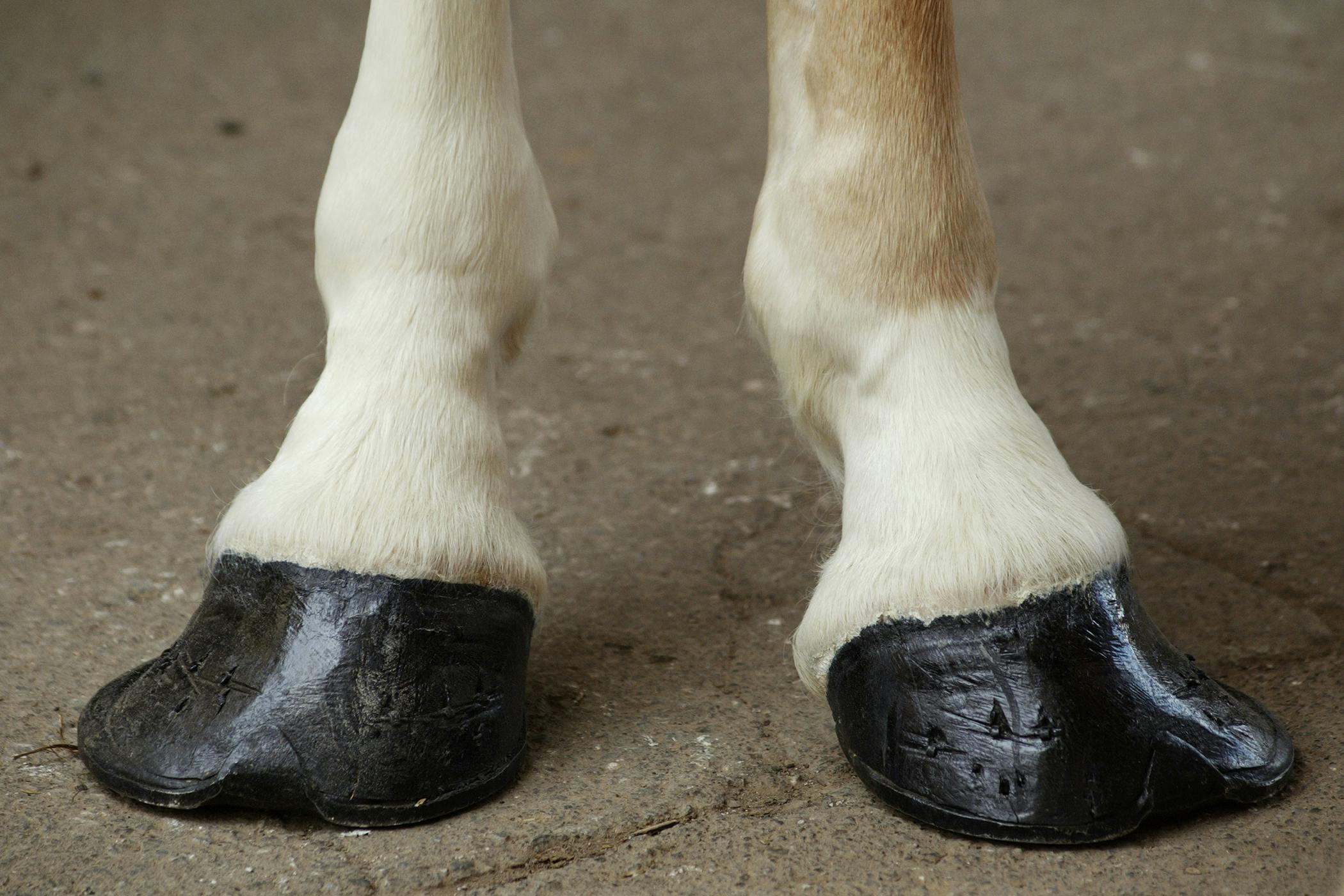



Club Foot In Horses Symptoms Causes Diagnosis Treatment Recovery Management Cost
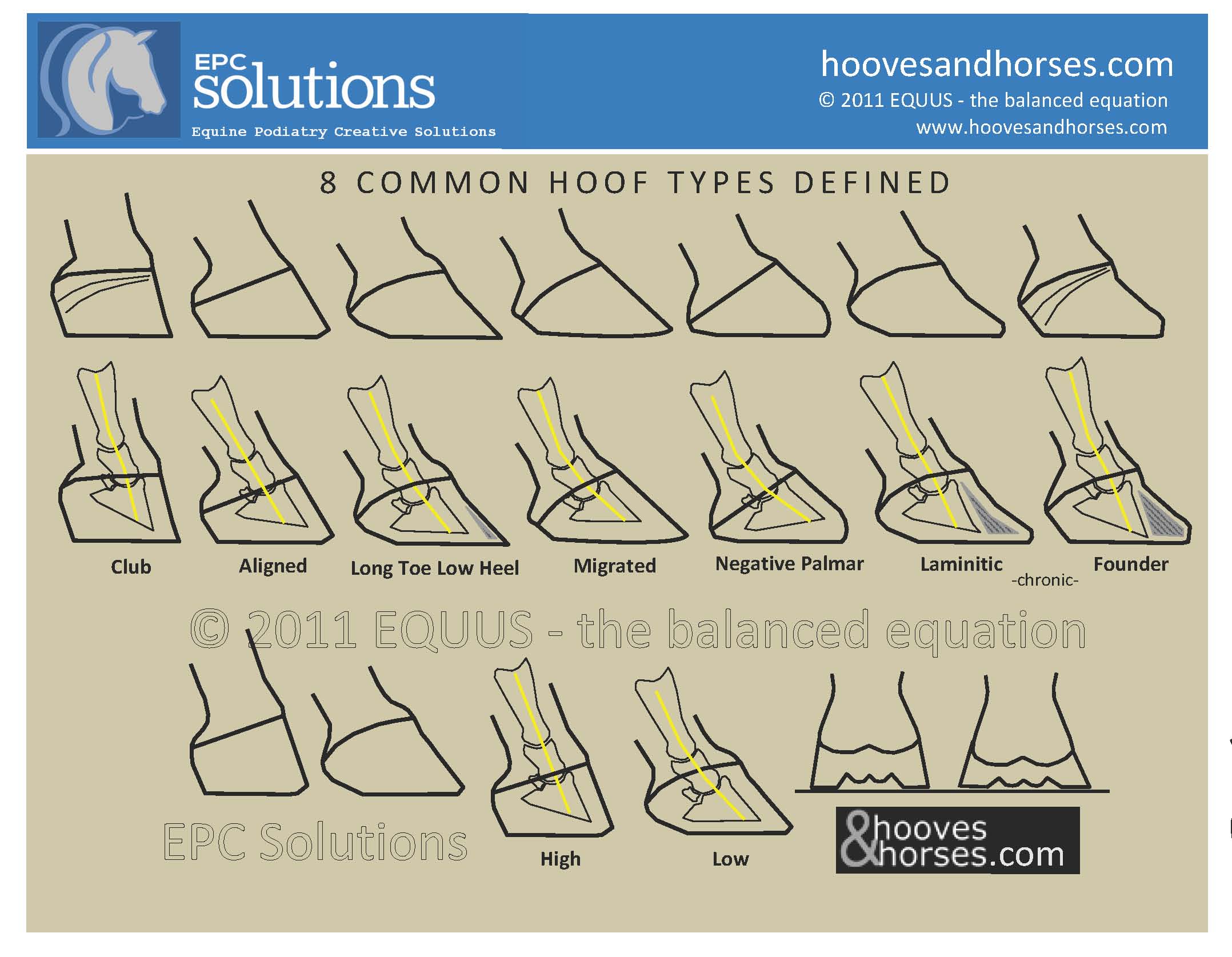



8 Hoof Types Explained



Club Feet The Brutal Truth David Farmilo




Managing The Club Foot The Horse




Figure 3 From Farriery For The Hoof With A High Heel Or Club Foot Semantic Scholar
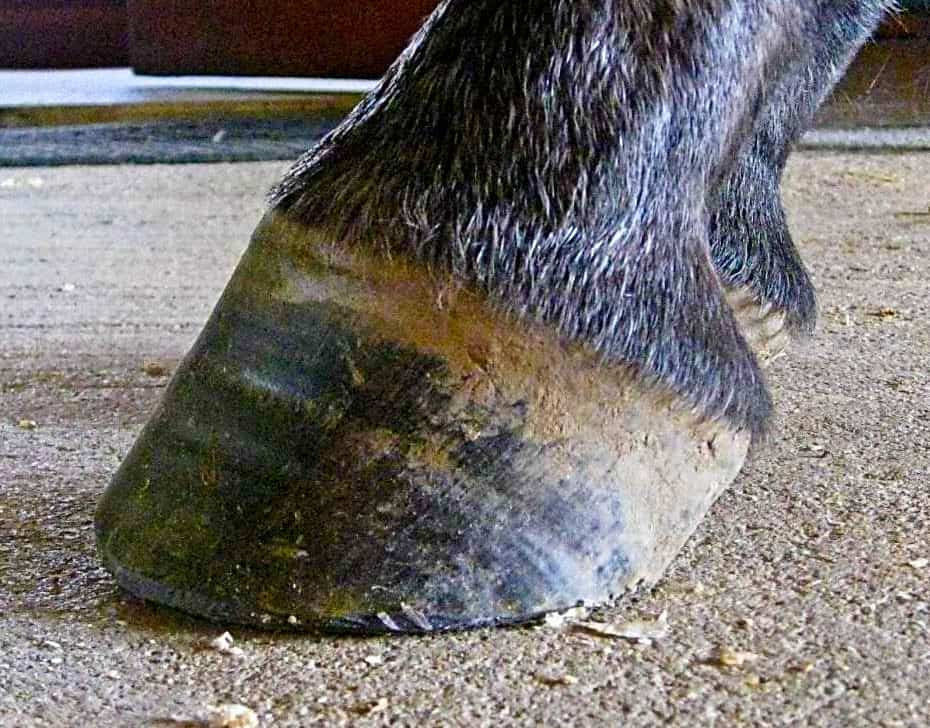



The Tolerable Club Foot The Horse




Understanding Club Foot The Horse Owner S Resource




Shoeing Options For Club Foot In Horses



コメント
コメントを投稿